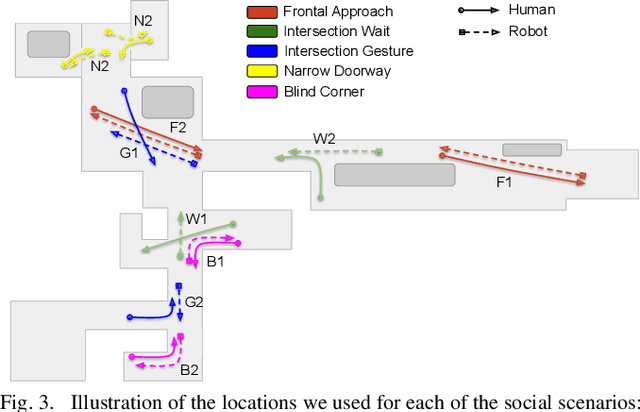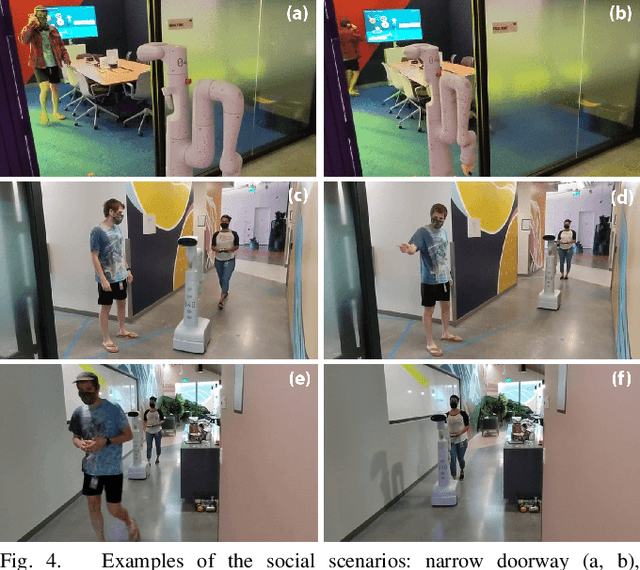A Protocol for Validating Social Navigation Policies
Paper and Code
Apr 11, 2022



Enabling socially acceptable behavior for situated agents is a major goal of recent robotics research. Robots should not only operate safely around humans, but also abide by complex social norms. A key challenge for developing socially-compliant policies is measuring the quality of their behavior. Social behavior is enormously complex, making it difficult to create reliable metrics to gauge the performance of algorithms. In this paper, we propose a protocol for social navigation benchmarking that defines a set of canonical social navigation scenarios and an in-situ metric for evaluating performance on these scenarios using questionnaires. Our experiments show this protocol is realistic, scalable, and repeatable across runs and physical spaces. Our protocol can be replicated verbatim or it can be used to define a social navigation benchmark for novel scenarios. Our goal is to introduce a protocol for benchmarking social scenarios that is homogeneous and comparable.
 Add to Chrome
Add to Chrome Add to Firefox
Add to Firefox Add to Edge
Add to Edge